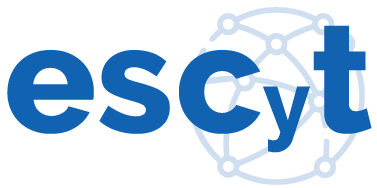Llamado a presentación de trabajos para Globelics 2011. Abajo se detallan las fechas importantes, los temas de las conferencias y las reglas y fechas del concurso para investigadores jóvenes (en inglés):
The conference organizing committee invites submission of full papers by 30 May 2011.
Papers are to be submitted via the website www.globelics.ungs.edu.ar.GLOBELICS is an international network of scholars who apply the concept of «learning, innovation, and competence building system» (LICS) as their framework and are dedicated to the strengthening of LICS in developing countries, emerging economies and societies in transition. The research aims at locating unique systemic features as well as generic good practices to enlighten policy making relating to innovation, competence building, international competitiveness, regional development, labor market and human capital development. In an increasingly global and knowledge-based competition, management strategies need to be based upon an understanding of these framework conditions and the public policies which seek to regulate the environment.
GLOBELICS has regional chapters in Asia, Africa and Latin America. Apart from providing training for PhD scholars through the Academy at Lisbon and Tampere GLOBELICS organizes annual conferences. Until now eight GLOBELICS conferences have been organized. The first conference was held in 2003, at Rio de Janeiro, Brazil, it was followed by the second conference at Beijing, China (2004), the third conference at Tshwane (Pretoria), South Africa (2005), the fourth in Trivandrum, India (2006), the fifth in Saratov, Russia (2007), the sixth in Mexico City, Mexico (2008), the seventh in Dakar, Senegal (2009) and the eighth in Kuala Lumpur, Malaysia (2010). All eight conferences were attended by leading scholars in the field from both the developed and developing worlds.
The 9th GLOBELICS International Conference will be organized around the following topics:
A. Innovation, Inequality and Sustainable Development
1. Innovation, economic development and inequality: Systemic issues and specific aspects (Education, Health, Employment, Migration, Gender Equity, Income Distribution).2. What do we know about building sustainable national, regional and sectoral innovation systems? Theory and evidence.
3. Inclusive innovation – social and regional perspectives.
B. Productive dynamics, innovation and economic development
4. The links between microeconomic learning and macroeconomic policies.
5. High tech industries and development: public policies and structural change.6. The role of scientific and technological knowledge in traditional sectors: the challenge for developing countries.
7. Agriculture, natural resources and innovation: implications for development outcomes
C. Knowledge demand and supply in innovation systems: interactions, institutions and policies
8. Human resources, competence building and specialization pattern: how to build local capabilities in a global context.
9. Universities as knowledge producers for economic development.10. Industrial policy to enhance the demand for knowledge.
11. Privatization of knowledge, Intellectual Property Right (IPR) and development.D. Coping with globalisation
12. MNCs and global value chains: from low to high added value.
13. Innovation and economic growth: convergence vs. divergence in productivity and welfare standards.
14. Innovation, SMEs and local development. Factors of attractiveness and embeddedness of the MNCs in local/regional/national systems.
15. The role of FDI from developing countries in global innovation networksE. Creativity and innovation
16. Mobilising creativity in the informal sector for innovation and economic growth.
17. The contributions of education systems and learning organisations to creativity.
18. The role of creative cities in national systems of innovation.
19. Creative responses and capacity building in complex systems: interactions and learningAcceptance of participation is based on a review by the Conference Scientific Committee upon novelty, academic quality and relevance to the themes of the conference, and accepted paper writers will be informed by July 30th, 2011. All accepted papers will be placed on the Website.
Full papers must be submitted in English and should be written using MS word (Microsoft Word 97-2003 or Microsoft Word 2007), with Times New Roman font type size 12 with 1.5 line spacing. Foreign words should be in italics. The length should not be more than 12,000 words (including tables, figures, notes, references and appendices). The paper should include an abstract not exceeding 200 words, describing the purpose of the research, the principal results and major conclusions .Ph.D. students of developing countries may apply to the PhD students’ paper competition. This competition is for those Ph.D. cantidates with their main institutional conection within a developing country who subbited full papers authored exclusively by the candidate (co-authored papers will be evaluated as regular submisions). Winners will receive a small grant to support their research and a diploma. In order to participate on this competition full papers should be submitted by April 30th , 2011, to www.globelics.ungs.edu.ar.
As has been the case for previous Globelics Conferences, arrangements will be made to publish selected contributions in special issues of leading journals in the field. All participants whos papers have been accepteds will be provided with local hospitality for three days (November 14-16). The delegates should be prepared to pay for all the other expenses in the hotel such as mini bar, telephone, laundry, etc. and outside such asthe city tour and other social events.
The Globelics Board is trying to mobilize resources for providing some travel support for participants from developing countries. Those who are in need may contact the organizing committee through Prof. Lundvall (bal@business.aau.dk) once their papers have been accepted.

Comentarios recientes